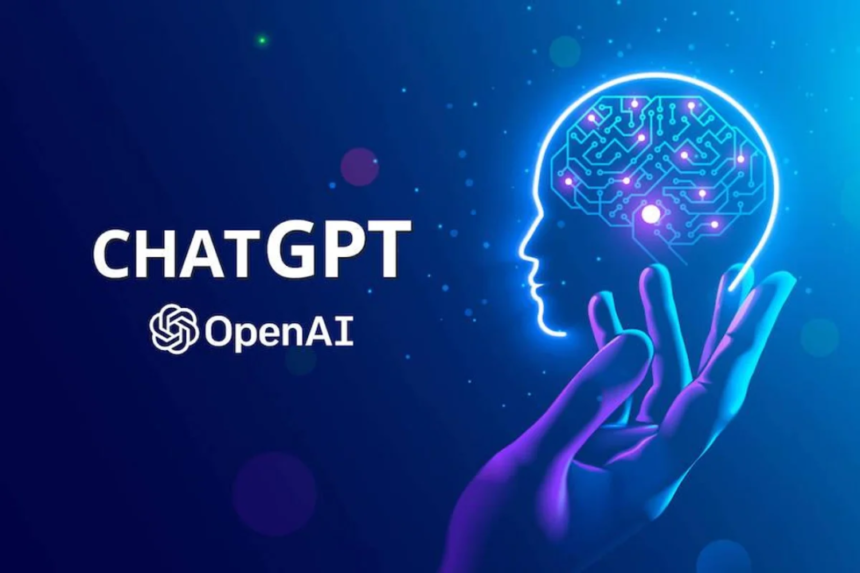ChatGPT, developed by OpenAI, is an advanced conversational AI model that has garnered widespread attention for its ability to engage in human-like dialogues. Built on the GPT-4 architecture, ChatGPT is a language model that leverages deep learning to generate text based on the input it receives. With its powerful capabilities, ChatGPT has found applications in a variety of fields, from customer service and content creation to education and personal assistance. This article explores the intricacies of ChatGPT, its underlying technology, applications, and the broader implications for society.
Understanding ChatGPT’s Core Technology
ChatGPT is a product of years of research in the field of natural language processing (NLP). It is based on the Generative Pre-trained Transformer (GPT) architecture, which is a type of deep learning model known as a transformer. Transformers have become the go-to models for NLP tasks due to their efficiency in handling large amounts of text data.
The “pre-trained” aspect of GPT means that the model is first trained on a massive dataset that includes a diverse range of text from books, articles, websites, and more. This pre-training phase allows the model to learn the intricacies of language, including grammar, context, and nuances. After pre-training, the model is fine-tuned on specific tasks, such as conversation generation, to make it more suitable for real-world applications.
One of the key features of GPT-4, the architecture behind ChatGPT, is its ability to generate contextually relevant and coherent responses. It does so by predicting the next word in a sentence based on the previous words, a process known as autoregressive generation. This enables the model to produce text that is not only grammatically correct but also contextually appropriate.
Applications of ChatGPT
ChatGPT is used for a wide range of applications across various industries due to its ability to generate human-like text based on input. Some of the most common uses include:
Customer Service
ChatGPT is deployed as a virtual assistant to handle customer inquiries, provide support, and resolve issues in a conversational manner. It can manage multiple interactions simultaneously, helping businesses improve response times and customer satisfaction.
Content Creation
Writers, marketers, and content creators use ChatGPT to generate articles, blog posts, social media content, and other forms of written communication. It can assist with brainstorming, drafting, and even refining content on a variety of topics.
Education
In the education sector, ChatGPT serves as a virtual tutor, helping students with homework, explaining complex concepts, and generating practice problems. Its ability to adapt to different learning levels makes it a useful tool for personalized education.
Personal Assistance
ChatGPT can function as a personal assistant, helping users manage tasks such as scheduling, setting reminders, and retrieving information. Integrated with smart devices, it can streamline daily activities and improve productivity. For businesses, too, there is chatgpt for website that can be a valuable tool in many ways. It can assist with writing and editing emails, reports, social media posts, and blog content, making communication faster and more professional. Businesses can also use it for brainstorming ideas, whether it’s for a new product, service, or marketing strategy.
Programming Help
Developers use ChatGPT to get coding assistance, including writing and debugging code, explaining programming concepts, and suggesting optimizations. It supports a wide range of programming languages and can be a valuable resource for both beginners and experienced programmers.
Language Translation and Learning
ChatGPT can assist with language translation and learning by providing translations, explanations of grammar and vocabulary, and conversational practice in different languages.
Creative Writing
Authors and creative professionals use ChatGPT to generate ideas, plot outlines, character descriptions, and even entire passages of text, helping to overcome writer’s block and inspire new creative directions.
Gaming
In the gaming industry, ChatGPT is used to create interactive dialogue for characters, generate quests, and enhance the storytelling experience in video games.
Research Assistance
Researchers use ChatGPT to summarize articles, extract key information, generate hypotheses, and assist in drafting research papers.
Social Media Management
ChatGPT helps manage social media accounts by generating posts, responding to comments, and engaging with followers, helping brands maintain a consistent online presence.
Ethical Considerations and Challenges
While ChatGPT offers numerous benefits, it also raises important ethical considerations and challenges that need to be addressed.
Bias and Fairness
One of the major concerns with AI models like ChatGPT is the potential for bias. Since the model is trained on large datasets that include text from the internet, it can inadvertently learn and replicate biases present in the data. This can result in biased or unfair responses, particularly in sensitive areas such as race, gender, and politics. Ensuring that ChatGPT provides unbiased and fair responses is an ongoing challenge that requires careful monitoring and intervention.
Misinformation
Another significant challenge is the potential for ChatGPT to generate and spread misinformation. As an AI language model, ChatGPT does not have the ability to fact-check the information it generates. This can lead to the dissemination of incorrect or misleading information, especially when used in contexts where accuracy is critical. Developers and users must be vigilant in verifying the information generated by the model.
Privacy Concerns
The use of ChatGPT in personal assistance and customer service raises privacy concerns. Since the model processes and generates text based on user input, there is a risk of sensitive information being mishandled. Ensuring that user data is protected and that the model adheres to strict privacy standards is essential to maintaining trust in AI technologies.
ChatGPT Free and Paid Versions
The free version of ChatGPT provides users with access to the core functionalities of the AI, allowing them to generate text, answer questions, and perform various tasks without any cost. This version is ideal for casual users or those new to AI, offering a valuable opportunity to explore and experiment with the capabilities of ChatGPT. However, during peak times, access may be limited, and users might experience slower response times or be placed in a queue. Additionally, the free version typically provides access to a standard model, which, while effective, may not include the latest advancements or features found in newer versions.
On the other hand, the paid version, known as ChatGPT Plus, offers enhanced access and performance for a monthly subscription fee, typically around $20. Subscribers benefit from priority access, even during high-demand periods, ensuring faster and more consistent response times. ChatGPT Plus users often have access to the latest model, such as GPT-4, which delivers improved accuracy, better contextual understanding, and overall higher-quality outputs. This version is particularly suited for professionals and heavy users who rely on ChatGPT for tasks like content creation, customer service, or other professional applications, where reliability and performance are critical.
In addition to these benefits, ChatGPT Plus subscribers may also enjoy priority support and early access to new features and updates, making it a more robust and reliable tool for those who require consistent, high-quality AI interactions.
The Future of ChatGPT and Conversational AI
As AI technology continues to advance, the future of ChatGPT and conversational AI looks promising. Future iterations of the model are expected to be even more powerful, with improved contextual understanding, reduced biases, and enhanced capabilities. Additionally, the integration of ChatGPT with other AI technologies, such as voice recognition and computer vision, could lead to the development of more sophisticated and intuitive virtual assistants.
However, the evolution of ChatGPT also requires a careful consideration of the ethical implications. As AI becomes more embedded in daily life, it is crucial to ensure that these technologies are developed and deployed in a way that benefits society as a whole. This includes addressing issues of bias, misinformation, and privacy, as well as fostering transparency and accountability in AI development.
Conclusion
ChatGPT represents a significant leap forward in the field of conversational AI. Its ability to generate human-like text has opened up new possibilities in customer service, content creation, education, and personal assistance. However, as with any powerful technology, it also presents challenges that must be carefully managed. As we continue to explore the potential of ChatGPT and other AI models, it is essential to strike a balance between innovation and ethical responsibility, ensuring that these technologies are used to enhance, rather than harm, society.


